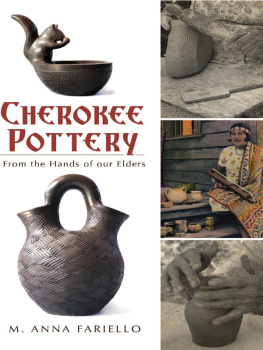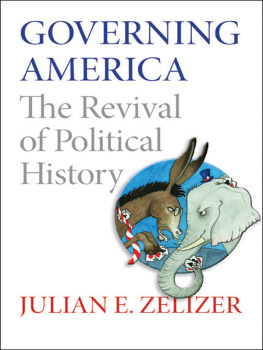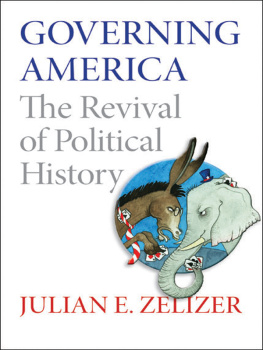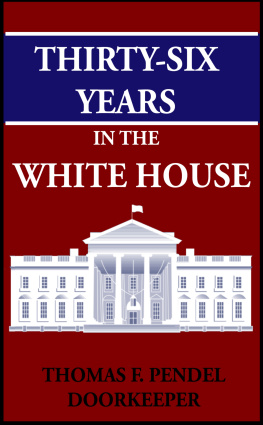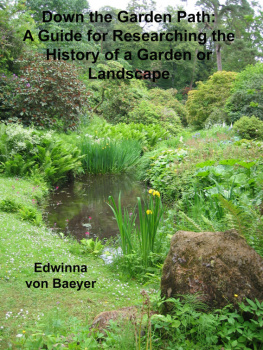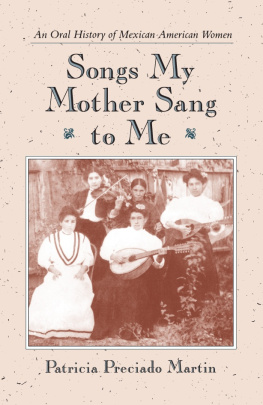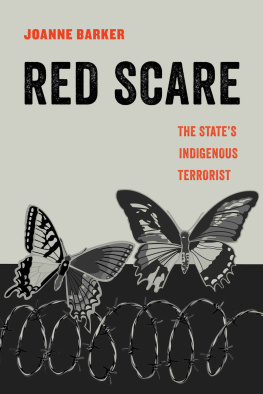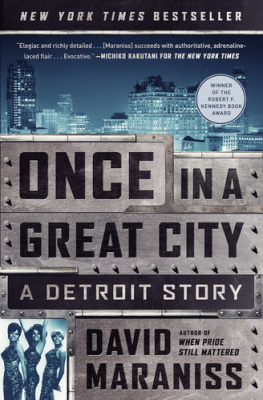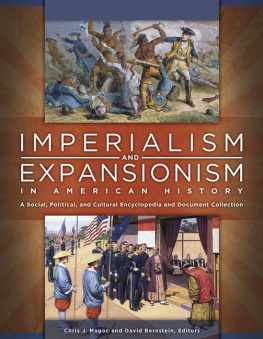Fariello - Red scare: memories of the American Inquisition: on oral history
Here you can read online Fariello - Red scare: memories of the American Inquisition: on oral history full text of the book (entire story) in english for free. Download pdf and epub, get meaning, cover and reviews about this ebook. City: New York, year: 1996, publisher: W. W. Norton & Company, genre: Politics. Description of the work, (preface) as well as reviews are available. Best literature library LitArk.com created for fans of good reading and offers a wide selection of genres:
Romance novel
Science fiction
Adventure
Detective
Science
History
Home and family
Prose
Art
Politics
Computer
Non-fiction
Religion
Business
Children
Humor
Choose a favorite category and find really read worthwhile books. Enjoy immersion in the world of imagination, feel the emotions of the characters or learn something new for yourself, make an fascinating discovery.
Red scare: memories of the American Inquisition: on oral history: summary, description and annotation
We offer to read an annotation, description, summary or preface (depends on what the author of the book "Red scare: memories of the American Inquisition: on oral history" wrote himself). If you haven't found the necessary information about the book — write in the comments, we will try to find it.
A remarkable document of an era that permanently changed the American political landscape.
Fariello: author's other books
Who wrote Red scare: memories of the American Inquisition: on oral history? Find out the surname, the name of the author of the book and a list of all author's works by series.
Red scare: memories of the American Inquisition: on oral history — read online for free the complete book (whole text) full work
Below is the text of the book, divided by pages. System saving the place of the last page read, allows you to conveniently read the book "Red scare: memories of the American Inquisition: on oral history" online for free, without having to search again every time where you left off. Put a bookmark, and you can go to the page where you finished reading at any time.
Font size:
Interval:
Bookmark:

Excerpt on pp. 1719 from Cedric Belfrage, The American Inquisition (New York: Bobbs-Merrill, 1973; reprinted Thunders Mouth Press, 1989). Copyright 1973 by Cedric Belfrage. Reprinted by permission of Susan Bergholz Literary Services, New York. p. 337 Lewis Allan & Earl Robinson, The House I Live In (Los Angeles: Warner/Chappell Music, Inc., 1942). Copyright 1942 Chappell & Co. (renewed). All rights reserved. Reprinted by permission, p. 366 Leon Rosselson, The World Turned Upside Down. Reprinted by permission of Leon Rosselson. p. 374 Lee Hays & Walter Lowenfels, Wasnt That a Time (New York: Sanga Music, Inc., 1957). Copyright 1957, 1966 by Sanga Music, Inc. All rights reserved. Reprinted by permission.
Copyright 1995 by Griffin Fariello
Published by arrangement with W.W. Norton & Company, Inc.
Library of Congress Catalog Card Number: 94-25859
ISBN: 0-380-72711-0
ISBN: 978-0-393-34641-1(ebook)
All rights reserved which includes the right to reproduce this book or portions thereof in any form whatsoever except as provided by the U.S. Copyright Law. For information address W.W. Norton & Company, Inc., 500 Fifth Avenue, New York, New York 10110.
The Library of Congress has cataloged the printed edition as follows:
Fariello, Griffin.
Red scare : memories of the American Inquisition : an oral history / Griffin Fariello.
p. cm.
Includes bibliographical references and index.
1. Anti-Communist movementsUnited StatesHistory. 2. Internal securityUnited StatesHistory20th century. I. Title.
E743.5.F34 1995
973.92-dc20 94-25859
First W. W. Norton Books Trade Printing: May 1996
W. W. Norton & Company, Inc.
500 Fifth Avenue, New York, N.Y. 10110
www.wwnorton.com
W. W. Norton & Company Ltd.
Castle House, 75/76 Wells Street, London W1T 3QT
HOUSE COMMITTEE ON UN-AMERICAN ACTIVITIES (HUAC)1938-75
Preceded by the Dies Committee, HUAC became in 1945 the first permanent committee established to investigate subversive and un-American propaganda and activities, and also the most powerful. From 1945 to 1957, HUAC held at least 230 hearings, at which more than three thousand persons testified, of whom more than one hundred were cited for contempt. Chairmen: Martin Dies (Texas), 193844; John S. Wood (Georgia), 194546; J. Parnell Thomas (New Jersey), 194748; Wood again, 194952; Francis E. Walter (Pennsylvania), 195564; Edwin P. Willis (Louisiana), 196568; Richard H. Ichord (Missouri), 19691975.
LOYALTY BOARDS (for federal employees; established nationwide under Trumans loyalty order)1947
From 1947 to 1953, 26,236 persons were referred to the loyalty boards for investigation. More than four thousand hearings were held, and nearly thirteen thousand interrogatories and letters of charges were issued.
SENATE INTERNAL SECURITY SUBCOMMITTEE (SISS)195176
Chairmen: Pat McCarran (Nevada); William E. Jenner (Indiana); James O. Eastland (Mississippi); Thomas J. Dodd (Connecticut).
SUBVERSIVE ACTIVITIES CONTROL BOARD (SACB)195073
Established by the Internal Security (McCarran) Act. Five full-time members appointed by the President. Sole purpose was to determine which organizations would be required to register as Communist-action, Communist-front, or Communist-infiltrated. Those groups compelled to register would be required to disclose membership and sources of funding. All literature or airwave material would have to be stamped Disseminated by______, a Communist organization. Members of such organizations would not be allowed to apply for a passport or renew an old one.
PERMANENT SUBCOMMITTEE ON INVESTIGATIONS OF THE SENATE COMMITTEE ON GOVERNMENT OPERATIONS
Chairmen: Joseph R. McCarthy (Wisconsin), 195354; John L. McClellan (Arkansas), 195560.
SMITH ACT (1940)
Made it a crime to knowingly or willfully advocate, abet, advise, or teach the duty, necessity, desirability, or propriety of overthrowing any government in the U.S. by force or violence, or to print, publish, edit, issue, circulate, sell, distribute, or publicly display any written or printed matter advocating, advising, or teaching the duty, necessity, desirability, or propriety of overthrowing any such government. It was also illegal to belong to, organize, or help organize any organization, or assembly of persons who advocated or encouraged the same. The penalties were ten years in prison and a $10,000 fine.
TAFT-HARTLEY ACT (1947)
Antilabor bill largely written by the National Association of Manufacturers (NAM). Among many labor restraints, Section 9(h) compelled all elected union officials to file yearly affidavits swearing they were not members of the Communist Party. Penalties for noncompliance included union decertification. Perjury charges awaited those accused of filing falsely.
INTERNAL SECURITY (MCCARRAN) ACT (1950)
Set forth as its thesis a Communist conspiracy to establish a totalitarian dictatorship in the countries throughout the world. Title II established concentration camps for use in national emergencies (this clause stayed on the books until 1971). Set up SACB (see above).
IMMIGRATION AND NATIONALITY (MCCARRAN-WALTER) ACT (1952)
Tightened previous restriction on aliens and heavily reduced immigration from nonwhite countries. Allowed for the denaturalization and deportation of citizens deemed subversive, as well as the deportation of resident aliens for political activity. Removed deportation case from the courts by setting up own boards unhampered by due process.
COMMUNIST CONTROL ACT (1954)
An attempt to exclude the Communist Party from the ballot and deny it access to the courts to enforce contracts. While not directly outlawing the Party, this act (sponsored by Hubert Humphrey) stripped it of all rights, privileges, and immunities attendant upon legal bodies. It also forbade any member of a Communist-action or Communist-infiltrated organization from holding office or employment with any labor organization.
Renamed the House Internal Security Committee in 1969.
J. Edgar Hoover kept his own roundup lists before the McCarran Act and maintained them after its repeal. Ironically, Senator Paul Douglas, coauthor of Tide II, was marked for pickup.
First and Fifth
Amendments to the
Constitution
AMENDMENT I
Congress shall make no law... abridging the freedom of speech or of the press; or the right of the people peaceably to assemble, and to petition the government for a redress of grievances.
AMENDMENT V
No person... shall be compelled in any criminal case to be a witness against himself, nor be deprived of life, liberty, or property, without due process of law.
The struggle of man against power is the struggle of memory against forgetting.
MILAN KUNDERA
This book of memories spans the two decades from 1945 to 1965, an era largely connected in American recall with tail fins and rock and roll, and with the last time a middle-class family of four could be supported on a single income. But it was also a time of political upheaval, when the question Are you now or have you ever been a member of Communist Party? was prologue to personal ruin, life in exile or on the blacklist, a shattered family, imprisonment, suicide, and for some even a violent death. For many who faced that question, the consequences of their answer still haunt them today.
It was a watershed event in Hollywoodthe hearings and the blacklisting and the informing. The memories die hard, although the people involved are dying. Were talking about forty years ago for those of us who were called in 51, and more for the Ten who were called in 47. There are only two of them left
Next pageFont size:
Interval:
Bookmark:
Similar books «Red scare: memories of the American Inquisition: on oral history»
Look at similar books to Red scare: memories of the American Inquisition: on oral history. We have selected literature similar in name and meaning in the hope of providing readers with more options to find new, interesting, not yet read works.
Discussion, reviews of the book Red scare: memories of the American Inquisition: on oral history and just readers' own opinions. Leave your comments, write what you think about the work, its meaning or the main characters. Specify what exactly you liked and what you didn't like, and why you think so.


